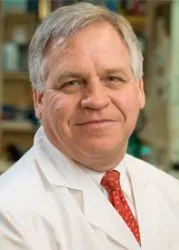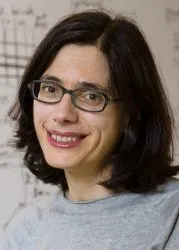The Cellular Geography of Therapeutic Resistance in Cancer


Overview
The majority of patients die from cancer because their tumors either do not respond to therapy or eventually develop resistance to the treatments. The Boston Human Tumor Atlas Network Research Center includes research institutions in Boston, Stanford, and Princeton that are mapping the cell types in breast cancer, melanoma, and colon cancer. The resulting tumor atlases will generate spatial and single-cell resolution information to provide an unprecedented understanding of the malignant, immune, and stromal cellular and tissue compartments that drive intrinsic and acquired resistance to existing and emerging therapeutics. These compartments then can be used to inform patient stratification and new treatment strategies and to make precision cancer medicine a reality. This detailed information is essential for the targeted therapies (e.g., CDK4/6 inhibition) and immunotherapies (e.g., anti-PD-1 therapies) we are examining, because these therapies typically benefit only a subset of patients treated with them for a limited period of time, and mechanisms of resistance to them are thus far poorly understood. Our studies will help develop both new insights to identify patients at risk of resistance to their cancer therapies and new treatment strategies to overcome both de novo and acquired resistance, ultimately improving the outcome for patients with cancer.
Principal Investigators
Bruce Johnson, MD
 Dr. Bruce Johnson is the Chief Clinical Research Officer at the Dana-Farber Cancer Institute and has organized and run clinical trials for more than 30 years. His translational research is devoted to testing novel therapeutic agents for their efficacy against lung cancer and other malignancies with specific genomic changes and the effects of the tumor microenvironment on efficacy of immunotherapy. Dr. Johnson was one of the scientists who discovered the association between epidermal growth factor receptor mutations and response to epidermal growth factor receptor-tyrosine kinase inhibitors. As the Director of the Center for Precision Medicine at the Dana-Farber Cancer Institute, he oversees the characterization of tumor specimens from patients both before and after therapy with chemotherapeutic agents, targeted agents, and immunotherapy. Dr. Johnson is a Professor of Medicine at Harvard Medical School, an Institute Physician at the Dana-Farber Cancer Institute and Brigham and Women’s Hospital, and Past President of the American Society of Clinical Oncology.
Dr. Bruce Johnson is the Chief Clinical Research Officer at the Dana-Farber Cancer Institute and has organized and run clinical trials for more than 30 years. His translational research is devoted to testing novel therapeutic agents for their efficacy against lung cancer and other malignancies with specific genomic changes and the effects of the tumor microenvironment on efficacy of immunotherapy. Dr. Johnson was one of the scientists who discovered the association between epidermal growth factor receptor mutations and response to epidermal growth factor receptor-tyrosine kinase inhibitors. As the Director of the Center for Precision Medicine at the Dana-Farber Cancer Institute, he oversees the characterization of tumor specimens from patients both before and after therapy with chemotherapeutic agents, targeted agents, and immunotherapy. Dr. Johnson is a Professor of Medicine at Harvard Medical School, an Institute Physician at the Dana-Farber Cancer Institute and Brigham and Women’s Hospital, and Past President of the American Society of Clinical Oncology.
Aviv Regev, PhD
 Dr. Aviv Regev’s research centers on understanding how complex molecular circuits function in cells and between cells in tissues. She is a professor in the Department of Biology at MIT, Chair of the Faculty and founding director of the Klarman Cell Observatory and Cell Circuits Program at the Broad Institute of MIT and Harvard, where she is a core member, and an Investigator at the Howard Hughes Medical Institute. Her lab has been a single-cell genomics pioneer – inventing key experimental methods and computational algorithms in the field, demonstrating their application, and inferring the molecular and cellular circuits that control cellular and tissue function in health and disease. She also is Founding Co-Chair of the international initiative to build a Human Cell Atlas (HCA), whose mission is to create comprehensive reference maps of all human cells – the fundamental units of life – as a basis for understanding human health and diagnosing, monitoring, and treating disease.
Dr. Aviv Regev’s research centers on understanding how complex molecular circuits function in cells and between cells in tissues. She is a professor in the Department of Biology at MIT, Chair of the Faculty and founding director of the Klarman Cell Observatory and Cell Circuits Program at the Broad Institute of MIT and Harvard, where she is a core member, and an Investigator at the Howard Hughes Medical Institute. Her lab has been a single-cell genomics pioneer – inventing key experimental methods and computational algorithms in the field, demonstrating their application, and inferring the molecular and cellular circuits that control cellular and tissue function in health and disease. She also is Founding Co-Chair of the international initiative to build a Human Cell Atlas (HCA), whose mission is to create comprehensive reference maps of all human cells – the fundamental units of life – as a basis for understanding human health and diagnosing, monitoring, and treating disease.